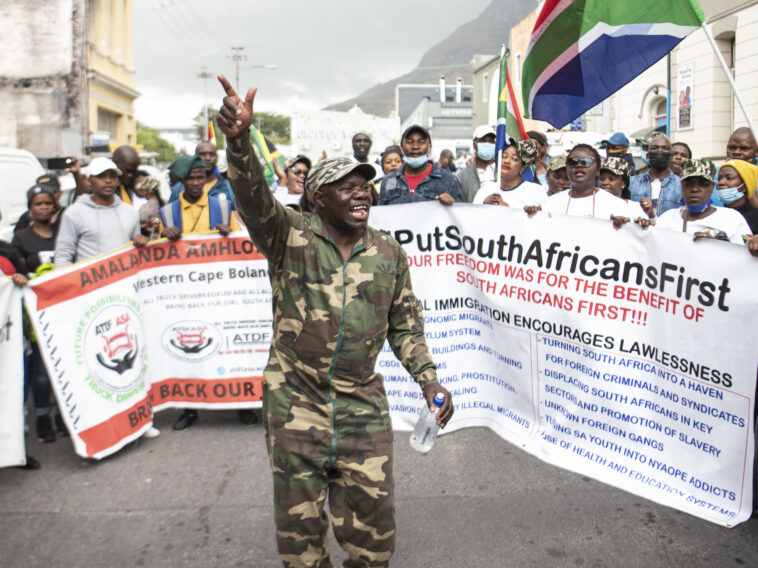In the United States’ presidential race, Donald Trump made a firm stance against foreign nationals a central pillar of his campaign. Garnering significant support from American voters, he aggressively pursued his mandate by using derogatory and inflammatory language against immigrants, leading to the expulsion of citizens from diverse nations. He recently escalated this policy by orchestrating large, militarized sweeps within residential areas and workplaces in cities like Los Angeles, with the aim of identifying and removing people from other countries.
This strategy incited massive protests among Los Angeles’ inhabitants, showing their vehement opposition to Trump’s policies. To control the situation and suppress these protests, the National Guard was controversially, and perhaps unlawfully, deployed. Several other cities across a number of American states also witnessed protest rallies against these policies. At the same time, legal proceedings were set in motion to challenge Trump’s actions in court.
As the immigration debate rages in the United States, South Africa faces its own struggle with unauthorized immigration. Public unrest has been exhibited through large marches in several cities, expressing discontent towards the significant number of unauthorized immigrants. A specific civil society group has even been organized to address the issue of unauthorized migration.
In South Africa’s political landscape, certain parties have been boosting these anti-immigrant sentiments with discriminatory rhetoric against foreign nationals. It’s become evident that the issue of illegal immigration needs to be urgently addressed. Failing to tackle this problem could lead to regrettable consequences, especially in an era where there is still an opportunity to chart a healthier course.
However, in the discourse on unauthorized immigration, it’s important to distinguish between legal, legitimate migrants and those who enter illegally. Countries worldwide have benefited immensely – culturally, socially, and economically – from legal migration practices. Sectors such as agriculture, mining, manufacturing, construction, hospitality among others have seen significant contributions from foreign nationals in South Africa.
The South African economy also owes much to foreign talents, notable in academia, insurance, banking, and engineering. It has become a matter of fact that the nation and society-at-large have been enriched because of these contributions. But allowing xenophobic sentiments to intensify due to negligent immigration management could result in the impoverishment of our country.
It is in South Africa’s best interest to prevent individuals with isolationist tendencies similar to Trump from holding political office. Effectively managing migration can curtail this threat. It’s equally important to increase the operational capabilities of the Border Management Authority, police, and the military to ensure better border control.
Simultaneously, stricter sanctions should be implemented against businesses that employ unauthorized immigrants. Such employers not only disrupt the labor market but also promote unauthorized migration – inciting resentment among local citizens as these immigrants are often preferred for their willingness to accept lesser wages and their lack of unionization.
The crackdown on businesses favoring unauthorized immigrants for their passive acceptance of reduced salary and unorganized labor will significantly deter migration. By ensuring that these ‘slave-like’ working conditions are eradicated, the prominence of South Africa as a destination for unauthorized immigrants could be lessened.
Moreover, proactive measures should be taken to deal with unauthorized immigrants involved in informal trade or illegally erecting shelters in informal settlements. Such activities are not allowed in any of South Africa’s neighboring countries. Rapid processing of asylum seekers and assistance allocation should also be a priority.
Although global migration has the potential to greatly enhance societies, it has to be adequately managed to prevent social tension and hostility that could threaten stability and civil order. Mistakes made in places such as Los Angeles present a window of learning for South Africa.
Failure to learn from these lessons could set a stage for the rise of a political leader akin to Trump, exploiting and escalating anti-immigrant sentiment for their personal gain. Such an eventuality could irreparably harm South Africa’s relationships with its continental peers.

